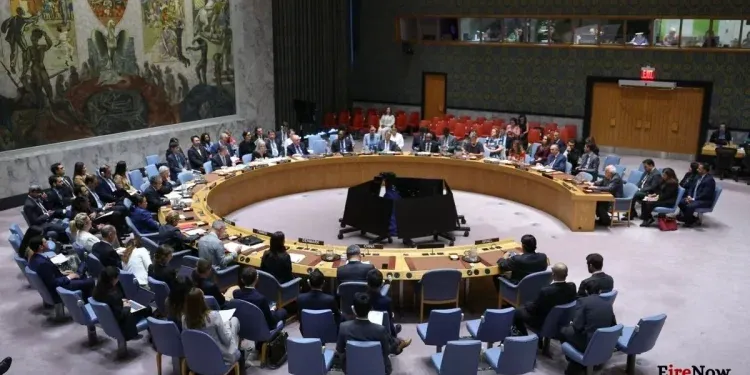NEW YORK — A global summit convened by France and Saudi Arabia is underway in New York today, aimed at rallying international support for a two-state solution to the Israeli-Palestinian conflict. The meeting, which includes dozens of world leaders, is taking place as a number of nations, including several G7 members, formally recognize a Palestinian state. This wave of recognition is a significant shift in diplomatic posture for some of Israel’s long-standing allies.
On Sunday, Britain, Canada, Australia, and Portugal officially recognized a Palestinian state. France and five other states are expected to follow suit on Monday. This coordinated action is seen by supporters as an urgent effort to preserve the viability of a two-state solution, which many fear is fading in the face of escalating violence and Israel’s ongoing military campaign in Gaza.
The moves have been met with strong condemnation from Israel and the United States, who are boycotting the summit. Israel’s UN Ambassador, Danny Danon, called the event a “circus” and has asserted that such recognitions “reward terrorism.” Israeli Prime Minister Benjamin Netanyahu has similarly stated that a Palestinian state “will not happen” and has pledged a response to the latest recognitions. Officials have reportedly floated possible retaliatory measures, including the annexation of parts of the occupied West Bank and bilateral actions against France.
The U.S. has also expressed its disapproval, with a State Department spokesperson labeling the recognitions as “performative gestures” that distract from “serious diplomacy.” The U.S. has warned of potential consequences for countries that take measures against Israel.
The summit highlights a growing rift between Israel and some of its traditional allies. While countries like Britain and France are leading the push for recognition, others like Germany and Italy have voiced caution, arguing that unilateral recognition could be counterproductive and might undermine future negotiations. The United Arab Emirates, a key partner in the Abraham Accords, has also expressed concern, with a state minister describing annexation as a “red line” that would “strike at the very heart” of the peace agreements.
Palestinians in Gaza, while welcoming the moral boost, remain skeptical about the summit’s ability to effect change on the ground, pointing to the lack of “serious pressure” on Israel. Meanwhile, some Israelis argue that the Palestinians have historically rejected opportunities for peace. The summit proceeds as Israel’s military offensive in Gaza continues, two years after Hamas’s initial attack, with few prospects for a ceasefire.







